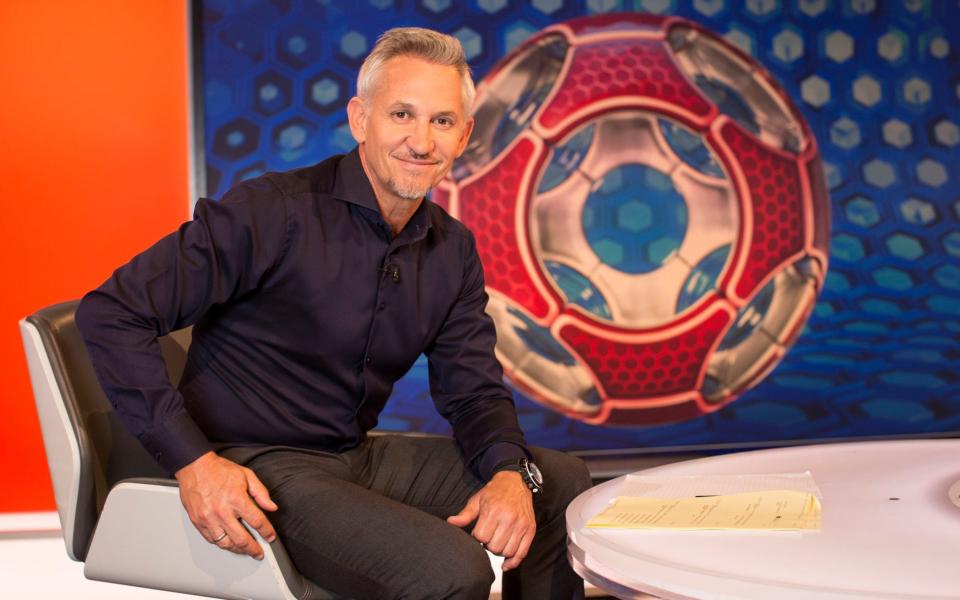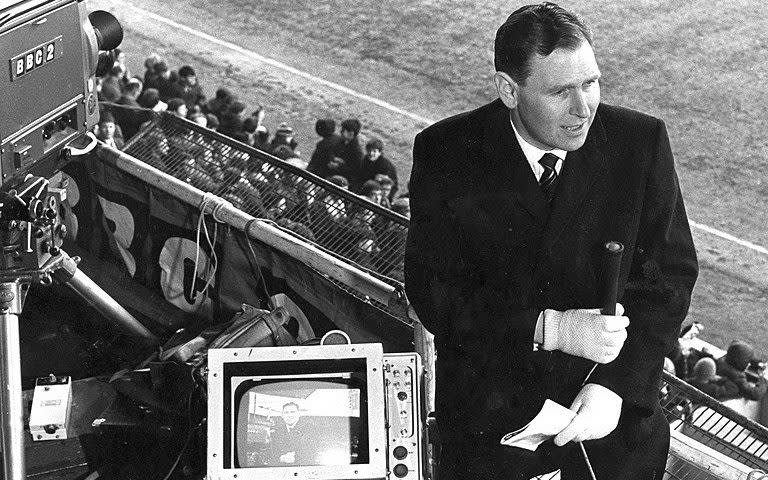What now for Match of the Day? BBC’s four options for future of show

If you have caught a bus, sat in a doctor’s waiting room or attended a church service in the past year you have probably shared space with a Match of the Day viewer.
On a good weekend 3 million people watch, or roughly one in 22 of the UK population. These are astronomical numbers for a programme broadcast after 10pm showing goals which many have seen already.
Despite some interruptions in its 59-year history, Match of the Day (MOTD) has historically been the only place to watch Saturday’s football.
Its status has been eroded by the increase of live TV matches, concise free highlights via the Sky Sports app and the obstinate rise of illegal streaming. So MOTD seemingly faces an existential crisis.
The exit of Gary Lineker, whether prompted by his current “step back", at the end of the five-year contract he signed in 2020 or later still, is a chance to reinvent the show.

Those with experience producing and pitching for the BBC agree about the priority: youth. This approach has alienated some viewers, but the corporation sees it as a necessity if it is to continue in its current form. It is here where MOTD faces an almost impossible challenge.
Innovation in sporting highlight shows is hard to pull off. Andy Townsend’s Tactics Truck, the lasting memory of ITV’s The Premiership from its three-year lifetime, remains shorthand for ill-fated gimmickry, a football version of Alan Partridge’s Monkey Tennis. Evolving while pleasing anyone, let alone everyone, is a thankless task. This leaves BBC Sport with four possible options for MOTD.
Year zero
Start from the assumption that viewers have seen the goals already and make an unabashed play for a younger audience. Diversify the line-up, alter the tone and study the social media success of Sky Sports and ITV and their occasionally confected rows between big-character pundits.
The Jermaine Jenas-helmed BBC Three show MOTDx may be a dress rehearsal for this approach, an attempt to reach younger eyes by combining football with music and culture.
Sources close to MOTD suggest it is unlikely to change drastically in the foreseeable future, as the basic format of highlights and analysis is not considered in need of fixing. There would also be practical complications to any abrupt changes.
As with the channel’s coverage of other sports, decisions about MOTD are made collectively by a team of senior BBC Sport staff and programme editors, answerable to the executives above them.

There is no all-powerful auteur figure who can steer MOTD in whatever direction they see fit, and being ruled by committee can make innovation either slow or impossible. So it is unlikely this course will be pursued, although last year’s shake-up of Question Of Sport shows the BBC is unafraid of tampering with its classics. Forecasting the weather is tough in a climate which deems the classified football results unnecessary.
Same as it ever was
Those who work on MOTD speak of their reverence for it as an institution and most commentators see it as the peak of their profession. Part of its allure comes from how little it has changed.
Therefore: steady as she goes, with an established core of inoffensive pundits and three strong candidates to replace Lineker.
Jenas has long been thought of as the heir and has banished any lingering presentational stiffness with a secondment to the One Show.
Alex Scott has enthusiastic fans within the organisation and among the viewership. Her Football Focus presenter job mirrors Lineker’s stepping stone to the MOTD gig. Mark Chapman has served a long apprenticeship on Match of the Day 2 and never puts a foot wrong.
Austerity MOTD
The danger with the planned format for Saturday night’s show – just the goals, none of the pundits – is it signs the death warrant for the established MOTD.
If the BBC was forced to stick with this arrangement for several weeks and viewing figures held up it would raise fair questions about the need for the show’s studio element.
This overlooks the inversion which has occurred in football coverage in the past 20 years. The appearance of pundits was once a cue to step away from the TV, hence fears of Cup final National Grid surges as the nation made a simultaneous tea. Now, especially on Sky after an eventful game, pundits’ contributions seem as compelling as the players’.
A highlights-only show or two may be an enjoyable novelty, but presenters and experts are the glue which give the programme its character.
Specialist MOTD
The success of Sky’s Monday Night Football since Gary Neville joined in 2011 proved a mainstream audience was ready for more thoughtful discussions of tactics and technique.
Since the giant iPad revolution, the standard of MOTD analysis has improved, but is limited by the time constraints of an all-encompassing highlights show and the lack of time to plan, rehearse and research. Is there a gap in the market for a serious longform football show?
On the continent or in America it is often possible to watch urbane or extroverted experts chat illuminatingly for hours after a big game. But given its timeslot, its mainstream remit and its abiding reach it is unlikely that the BBC would choose to move MOTD too far in this direction.
Destination unknown
Clearly its reach has diminished since MOTD was the only football show in town, but there is still a sizable section of the country whose weekly consumption of football begins and ends with it. The show has had five hosts since its inception, Kenneth Wolstenholme, David Coleman, Jimmy Hill, Des Lynam and, since 1999, Lineker. Jimmy Hill managed 15 years, Lineker is closing in on 25.
He has been the host of MOTD for so long it is now a programme in his own image: chummy, smooth and easy on the eye. There is a Doomsday scenario which takes the future of MOTD out of the hands of its creators. After the mess of this weekend’s washout, will the Premier League want the BBC to handle its highlights next time they become available? If not, and another bidder emerges, the next chapter for MOTD could be another spell off the air.

 Yahoo Sport
Yahoo Sport 





































